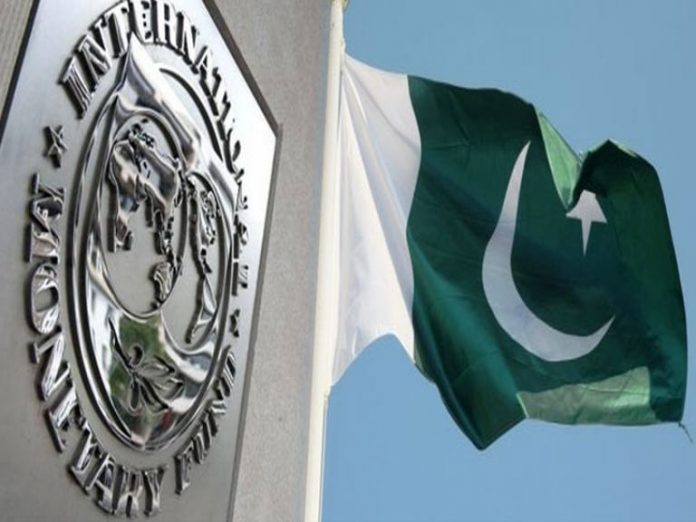“The IMF (International Monetary Fund) has again contradicted the government’s claims that it is the IMF programme that is making finances for the elections unavailable. Both CS Punjab and Secretary Finance had stated IMF targets as the primary reason why finances for elections wouldn’t be available,” Taimur Khan Jhagra, the former Khyber Pakhtunkhwa Minister of Finance exclaimed on Twitter.
The tweet came in response to the Secretary Finance’s remarks about the government’s inability to release funds for the General Elections, due to the targets set by the IMF program for the maintenance of fiscal discipline and deficit. Jhagra’s party has been coming down hard against the PDM government both politically and on their economic performance. This recent episode involving the delaying of elections seems to have touched a very particular nerve.
In response, Esther Perez Ruiz, the IMF Pakistan Representative clarified that there was no requirement under Pakistan’s EFF-supported (Extended Fund Facility under IMF) program which could interfere with Pakistan’s ability to undertake constitutional activities. The decisions regarding constitutionality, feasibility, and timing of the provincial and general elections rested solely with Pakistan’s institutions.
There has been an ongoing tussle between Ishaq Dar, Finance Minister of Pakistan and the IMF. On the 9th of March, Dar said that the country was “very close” to signing a staff level agreement with the IMF, which would offer a critical lifeline to tame the balance of payment crisis. An agreement would release $1.1 billion to the crisis-ridden national economy. These funds are part of a $6.5 billion bailout package that the IMF approved in 2019, which according to analysts could prevent Pakistan from defaulting on external debt obligations.
The Nuclear Program Debacle
The funds were however being delayed. On 16 March, Veteran politician Senator Raza Rabbani elucidated whether the delay in the implementation of the IMF program was due to “some sort of pressure exerted on Pakistan’s nuclear or is it that there is some pressure on the strategic relationship between us and China? Or is it that some imperial power in the new context of the world order wants a presence in the region?”
Dar also firmly reinstated that there would be “no compromise” insofar as the country’s nuclear and missile programs were concerned. These statements paved the path for speculation and eventually the Pakistan Tehreek-e-Insaf (PTI) Vice Chairman and former Foreign Minister, Shah Mahmood Qureshi also called the government for an explanation.
Ruiz, the IMF resident representative in Islamabad castigated these claims, asserting that there is “absolutely no truth to this or any insinuated link between the past or current IMF supported program and decision by any Pakistani government over its nuclear program.”
Later, Dar retracted his previous claims and stressed that the IMF had raised no conditions or demands with regards to Pakistan’s nuclear program. The delay in the IMF staff-level agreement was attributed to “technical reasons.”
A Longer History of Mistrust
Again, Dar has come under the limelight for linking the impracticality of conducting General Elections with the fiscal deficits arising from the IMF agreement. Profit reached out to Jhagra who indicated that there is a longer history of acrimony between IMF and the government.
“The reasons for consistent delays in the agreement predate Ishaq Dar. First, the set of steps that the government undertook to increase salaries on the first day were contrary to the terms agreed with the IMF. The entire budget had to be changed as a consequence.” Jhagra said
“Another big step predating Dar was the ban on imports and LCs, which was again contrary to what the IMF had wanted,” Jhagra adds. “In further defiance of the IMF, the government committed to surpluses on part of the provinces, which are yet to materialise. KP was the only province to put a caveat on surpluses.”
“All of this eroded the IMF’s confidence in the government. The government severely jeopardized its credibility with the IMF and continued with business as usual.” Conclusively, we have now reached a point where there is already a long trail of trust deficit with the IMF.
Jhagra continued, “when Miftah Ismail (former Finance Minister) concluded the deal with the IMF, he made a commitment, which he actually meant, but he was fired within days. Dar on the other hand has a more aggressive tone towards the IMF.”
“To understand the present tension with the IMF, you need to understand what has been happening in the past. There has been negligence on part of the government. The ban on LCs for example was blatantly stupid.”
“You have gotten away with half truths in the past, and you think you’ll get away with them in the future. The government has this perception that we are too big to fail, and because of this, they will not allow us to fail,” exclaimed Jhagra.
According to Jhagra, while the government has already lost credibility with the IMF, it has also lost the confidence of the one or two friendly countries that would bail it out. “We need to take a few steps to get our house in order before seeking help from outside” he said.
“This is true of Dar and of the bureaucracy also. With the nuclear program conjecture, Dar would have gone to the election commission to gain political populism. Such statements are bound to make people justifiably angry. What sort of a bizarre dispensation is this where the government of a country is bent on economic destruction?” Jhagra asserted.




